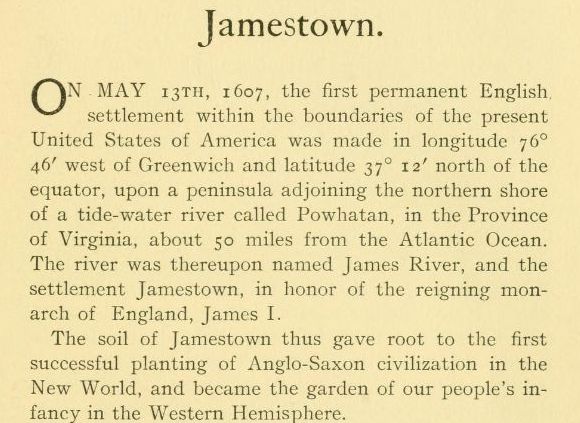In this post, we will see Americans described from an outsider’s perspective, by French writer Philarète Chasles, back in 1851. Remember, this was at a time when mass immigration had not yet begun its work of changing the nature of the people, and hence, the country. It is true that the great mid-19th century wave of immigration had already begun, and was under way in one original bastion of English-America: New England.
But despite the waves of immigrants which began arriving around that time, there was still much of the original English or Anglo-Norman culture left.
Chasles notes how the several European nationalities which were part of America at the beginning became subsumed within the Anglo-Saxon and Dutch original colonist stock, with the resultant mix of nationalities: ‘a grey and nameless tint’. But he, as one familiar with England and her people, recognized commonalities:
”Still, in all this, the ancient nationalities may be traced: the enterprising energy and patient audacity of the Saxon, the indomitable temerity of the Norman, the exaggerated Cockneyism and vulgarity of Wapping, the calm sterility and cipher-egotism of Leadenhall Street, the adventurous smartness of the blackleg, the outward and formal rigor of the Puritan. The Old English nationality has not yet had time to get quiet and refined, nor to transform itself thoroughly, but this will take place, and soon one will no longer recognize its source. Every day furthers the metamorphosis, and few see what is going on under their very eyes.”
And as Chasles wrote those words, in the mid-19th century, a real change was about to be wrought by the unprecedented (at that time) numbers of immigrants from disparate nations: eastern Europe, Ireland, Southern Europe, and in parts of the U.S., Asian immigrants also. After a century and a half, are we still the same people, or are we completely metamorphosed? I think the original stock has been marginalized, but has not disappeared; after all, the British original stock (along with some Dutch and French settlers also) created the America to which the 19th century immigrants were required to assimilate.
The established American culture and its institutions bore the stamp of the English colonists.
Although very imperfectly and incompletely, we did assimilate the 19th century immigrants, some of them even now persist in identifying with ‘the old country’, and claim their identity through the old-country origins of generations ago.
Have we reached the stage where Chasles’ prediction has come true, that we ‘no longer recognize the source’ of our nationality? I think we are close to having forgotten our roots, if not completely amnesic.

